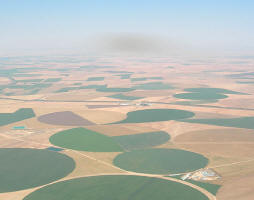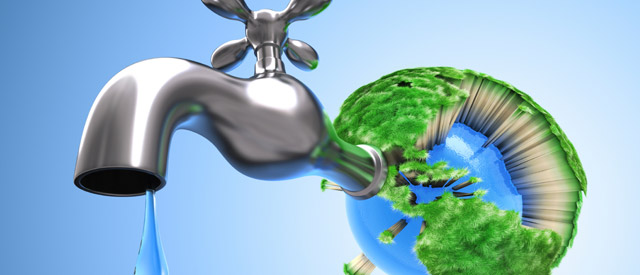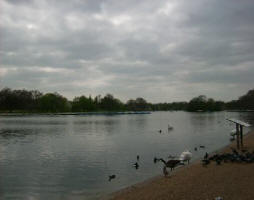 Israeli irrigation expert wins World Food Prize
Israeli irrigation expert wins World Food Prize
An Israeli scientist who has reached across political and ethnic boundaries to help dozens of countries in the Middle East, Africa, Asia, and South America improve agriculture with new irrigation methods will receive the World Food Prize, the prize’s foundation announced Tuesday.
Daniel Hillel, who is credited with developing drip irrigation methods that conserve water while allowing food to be grown in some of the world’s driest climates, was named the winner of this year’s $250,000 prize during a ceremony in Washington. He will officially receive the prize October 18 during the annual World Food Prize Symposium in Iowa.
The system Hillel developed, called micro-irrigation, carries water through narrow plastic pipes to plants, where it drips or trickles onto the roots. It has revolutionised agricultural practices in more than 30 countries over the past 50 to 60 years, helping thousands of farmers, said World Food Prize Foundation President Kenneth Quinn.
The World Food Prize, which honours efforts to fight global hunger, was created by Norman Borlaug, the winner of the 1970 Nobel Peace Prize for his efforts to increase food production in developing nations with the use of hybrid crops. He died in 2009.
Quinn noted that several of the letters supporting Hillel’s nomination came from individuals and institutions in the region.
“He’s able to reach across the intercultural gap with this agricultural achievement in order to address that problem that they have in common about how to lift people out of poverty and reduce hunger by working together,” Quinn said. “In an area of the world and in lands where the divides — whether they be ethnic, political, religious, or diplomatic — seem so great, here is a man who by devoting his life to this peaceful development has sought to bridge those gaps.”
Hillel told the Associated Press in a phone interview from Israel that managing natural resources, respecting ecosystems, and living in an environmentally sustainable manner transcends boundaries.
“I’m a great believer in international cooperation, and I’ve devoted much of my career to it,” he said. “I believe in peace. I’m a passionate believer in peace rather than rivalry, enmity and destruction.”
Hillel, 81, was born in Los Angeles, but after his father died, he moved at age 1 in 1931 with his family to Palestine, a part of which became the state of Israel in 1948.
At age 9, he was sent to live in a rural, communal settlement known as a kibbutz, where he learned farming practices and gained a respect for the land. After earning undergraduate and graduate degrees in the United States, he returned to Israel in 1951 and joined the ministry of agriculture, where he helped create the first map of the country’s soil and water resources.
Within a year, he joined a group of settlers who were dedicated to creating a viable agricultural community in the Negev Desert highlands in southern Israel, where water was scarce. Working with those farmers allowed him to develop and refine his ideas on micro-irrigation, he said.
For thousands of years in the Middle East, irrigation involved diverting large quantities of water from rivers, trapping it in basins and using it to soak farmland. The soil would then gradually dry out. It was an inefficient method of growing crops, Hillel said.
The availability of inexpensive, small plastic pipes after World War II created the possibility of moving water to crops in a more continuous fashion. The pipes could be perforated to allow water to drip from small holes down to the roots of plants, Hillel said. In time, fertiliser was added to the water.
“With a little bit of water, you’d get a much better crop,” Hillel said. “This was a great innovation. I was in on the ground floor of this. I can’t say that I was the inventor of it, but I was very active on the early stages of it and developing the philosophy of it.”
David Ben-Gurion, the founder and first prime minister of Israel, visited the farm and was so impressed he asked Hillel to take his ideas to Asia, Africa and South America. Hillel said he’s visited as many as 40 different countries during his career.
“We need to learn how to manage land so that it will not degrade and do it efficiently. At the same time, we must maintain natural ecosystems without encroaching upon them without excessive deforestation and destruction of biodiversity,” he said. “All of that is a great concern to me, and I’m devoting my career to it.”
| Contact information | n/a |
|---|---|
| News type | Inbrief |
| File link |
http://mideastenvironment.apps01.yorku.ca/?p=5219 |
| Source of information | AP/ Jordan Times |
| Keyword(s) | irrigation |
| Subject(s) | AGRICULTURE , HYDRAULICS - HYDROLOGY , METHTODOLOGY - STATISTICS - DECISION AID |
| Relation | http://www.semide.net/countries/fol749974/country725681 |
| Geographical coverage | Israel, |
| News date | 15/06/2012 |
| Working language(s) | ENGLISH |
 you are not logged in
you are not logged in





